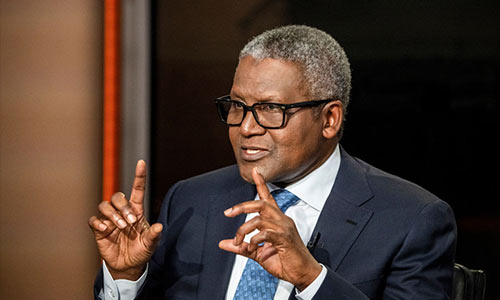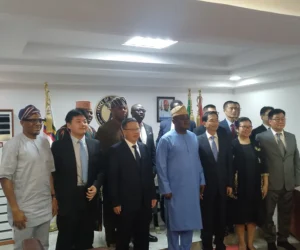1
ABUJA – The President of Dangote Group, Alhaji Aliko Dangote, has provided a pragmatic perspective on the global energy transition, emphasising the gradual nature of the shift away from oil-based resources.
Speaking on the topic during a programme monitored by Independent on Arise TV on Sunday, Dangote noted that a significant portion of everyday products and vehicles still depend heavily on oil.
“When you look at most vehicles you will see that 35 per cent of those vehicles are from oil which is plastic,” Dangote explained.
He stressed that while energy transition is inevitable, it will not be an immediate transformation.
“The transition will happen but it is not going to happen in the next 15-20 years,” he added, highlighting the extended timeline required for a full shift to alternative energy sources.
Dangote’s comments underscore the ongoing reliance on oil in various sectors and the challenges facing rapid adoption of renewable energy and sustainable alternatives.
The Africa’s richest man’s insights point to a future where the energy transition occurs progressively, allowing industries and markets time to adapt.
Similarly, Kola Karim, Chairman of Shoreline Natural Resources Limited (SNRL), has called for a more equitable approach in applying global environmental standards to Africa, highlighting the continent’s unique circumstances and developmental stage.
Karim emphasised that it is unfair to hold African countries to the same benchmarking standards as OECD nations, many of which are advancing through their fourth industrial revolution.
“In Africa we have not even had our first,” he noted, stressing the need to appreciate the different phases of development.
He noted that Africa contributes only three percent to global emissions, urging a more tailored approach to environmental laws that considers the continent’s context.
Karim also highlighted Africa’s significant potential in clean energy, pointing to abundant water resources ideal for hydro power, and widespread solar energy opportunities due to the continent’s extensive sunlight.
“More importantly, we have an energized young population,” he added, signaling the hope that this demographic can drive Africa’s structured and sustainable energy value chain forward.
Karim’s remarks underscore the call for climate and energy policies that align with Africa’s realities and strengths rather than uniformly imposing global standards designed for advanced economies.







